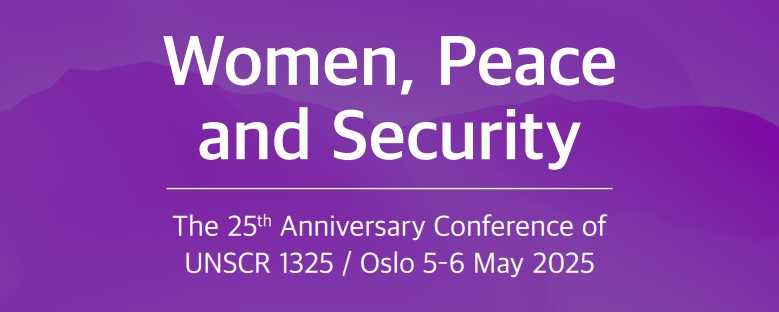
PRIO’s Centre on Gender, Peace and Security is co-hosting a conference marking the 25th anniversary of UN Security Council Resolution 1325, together with Forum 1325. Held in Oslo on 5–6 May, the event gathers global leaders, activists, researchers, and experts to reflect on past achievements and chart the path forward for the Women, Peace and Security agenda.
Adopted in 2000, UN Security Council Resolution 1325 was the first formal recognition by the United Nations of the unique impact of armed conflict on women and girls — and of women’s crucial role in peacebuilding, conflict resolution, and post-conflict recovery. As the WPS agenda enters a new era shaped by protracted conflicts, democratic backsliding, and a shifting global order, there are both urgent challenges and emerging opportunities to revitalize its implementation.
The conference, held at the Red Cross Conference Centre in Oslo, is organized in collaboration with Forum 1325 — a network of Norwegian civil society organizations engaged in WPS advocacy and implementation. It brings together a diverse group of participants from civil society, international organizations, academia, and policymaking communities, representing regions across the world.
Norwegian Minister of Foreign Affairs, Mr Espen Barth Eide, will open the conference, followed by a keynote address from Sanam Naraghi Anderlini, a leading global advocate in the field of women, peace and security. The conference will assess the progress of the past 25 years and explore how the WPS agenda can be reimagined to respond to today’s complex global environment.
Panel discussions will address a wide range of critical topics: from the prevention of sexual and gender-based violence (SGBV) and survivor-centred responses, to inclusive participation in peacebuilding with a focus on women from diverse backgrounds — including LGBTIQ+ communities, youth, and other marginalized groups. Additional sessions highlight the roles of women mediators and faith-based actors, the shrinking civic space for women-led organizations, and the growing precarity of grassroots feminist movements. The final panel will look to the future, asking how the WPS agenda must evolve in a rapidly changing geopolitical landscape.
The conference organizing committee consists of CARE, FOKUS-Forum for Women and Development, Norwegian Church Aid, Norwegian People’s Aid, Peace Research Institute Oslo (PRIO), the Rafto Foundation, and the Women’s International League for Peace and Freedom–Norway.





